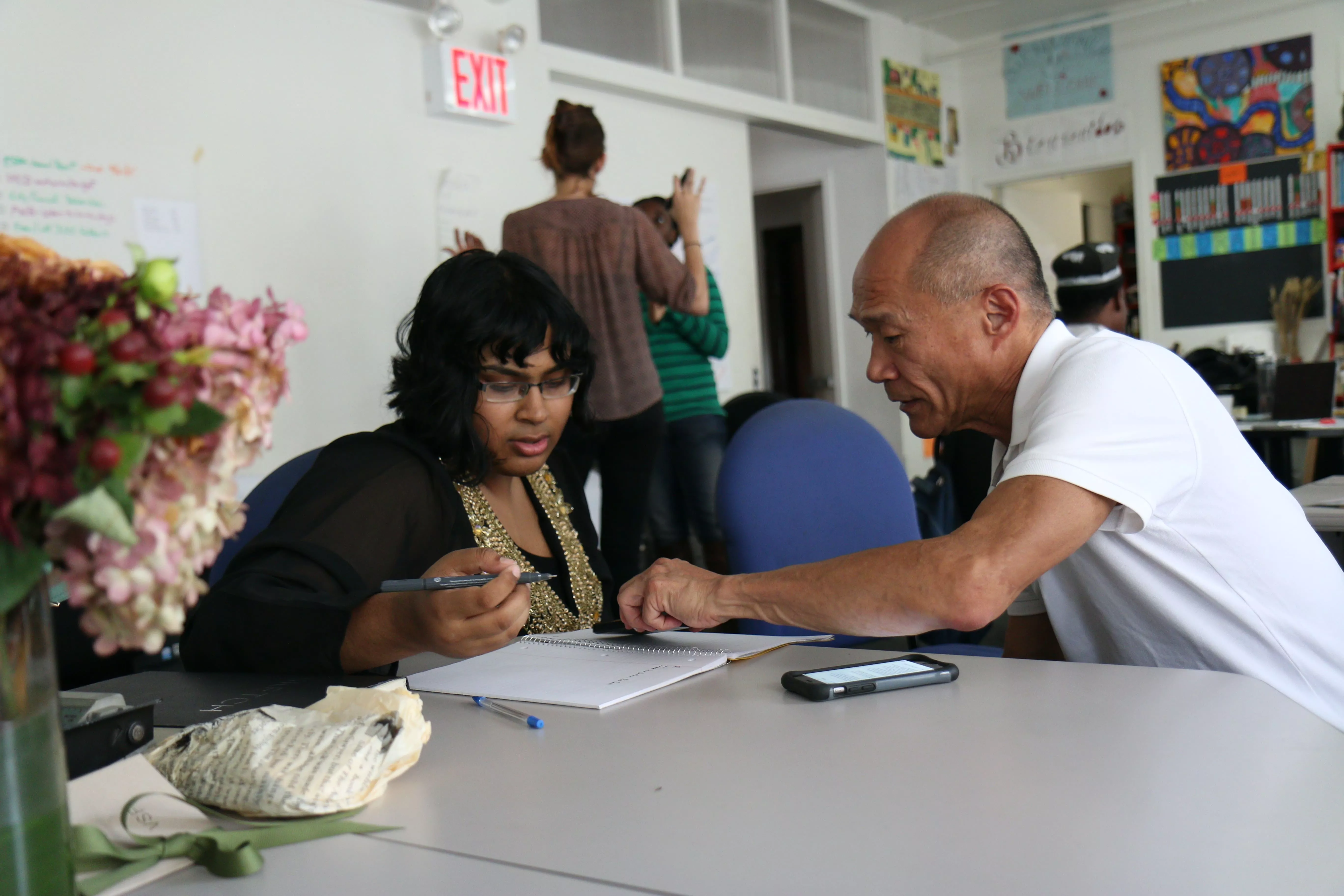Barriers to adult language learning


Today, speaking more than one language is something really valued when looking for a job, because it allows you to communicate with the maximum number of people, understand documents and have contact with companies at international level. But everyone knows that it is not the same to learn a language as a child that to learn a language as an adult. Barriers multiply by the number of years. But this does not mean it is impossible. Effort and perseverance are vital when it comes to doing something you want, and if you put all your interest and motivation into it, you will definitely achieve what you desire.
In this post we will talk about the biggest barriers that adults have when learning a new language. As mentioned above, it is not the same to learn a new language when you are 4 years old as when you are 40. There are some factors that can affect to adult learning. These are some of them:
- One of the main barriers is cognitive ability. Learning a language is not easy and it requires a lot of effort, whether you are a child or an adult, but it is true that children’s brains have much more plasticity, so it is easier for them to learn new things. Memory is fundamental when learning and children are like sponges that absorb everything, unlike adults, who show more difficulty in this aspect.
- Another aspect that can make language learning more difficult is the mother tongue. Adults have more internalized the structure, rules, and pronunciation of their mother tongue, making it more difficult for them to learn the new language. This causes interferences, the use of false friends, poor pronunciation, and major problems with oral comprehension. In this case, much more emphasis should be placed on the difference between the language being learnt and the mother tongue. Adults who are learning a new language, whatever their reason is, will need to put more perseverance into what they are doing, because as we have mentioned, it is quite difficult for them to learn a new language fluently.
This of course, generally speaking, because if we stop to analyse individually, there are people who will learn quickly than others, since there are people with language aptitude. Language aptitude means innate talent or predisposition for language learning. A learner with high aptitude may learn with greater ease and speed.
- Motivation. When we are young, we are much more motivated to learn than when we are adults. Children have far fewer concerns than adults, generally, a child should have very few things to worry about, such as doing homework and studying for their next exam. But when we grow up, everything gets more serious and worries grow, especially if you have people to take care of. All this can affect a lot when we try to learn a language and study its structures and rules. Adults need more motivation when learning new things, but at the same time it is harder for them to find this motivation.
- Economy. One of the obstacles that is also very important is the economy. Not everyone has equal access to education and there are people who can opt for better. Nowadays, there are many ways to learn a language, such as an academy, a private teacher, a trip abroad or simply accessing the internet. But not everyone has the same opportunities to learn, and it is difficult for them if the level of economy is low and cannot afford to go to an academy or get help for learning.
- Time. Not everyone has time to devote to learning a language. There are many things adults must do before studying a language, such as go to work, take care of the home, take care of children, elderly people and many more things that depend on the life of each person. Usually, an adult has little time to devote to learning a language, unlike a child or adolescent whose only concern is his or her studies.
These are some of the obstacles that adults face when studying a new language. Bear in mind that not everyone lives in the same circumstances and that not everyone has the same opportunities. We must also consider that not everyone decides to learn a language for the same reason. There are people that emigrate to another country and must learn the language in order to be able to communicate and there are people that decide to learn a new language because they want to do it.
Learning a language, whether you are a child, or an adult is always a good thing. There are many benefits and improvements to be gained from language study:

- Communication. By learning a language, you can communicate with more people. You will make more friends and increase your social circles. This will increase motivation, as you will be able to share concerns with others and you will also see that learning has effect.
- Intellectual development. When we learn new words, sounds, structures, and rules, we increase our intellectual capacity, and our brain will work more effectively, and concentration will be easier.
- Our memory can improve, as we learn new things.
- It can also increase self-esteem, as over time we will see progress and new opportunities to continue learning.
- Opportunities. Today, speaking different languages is highly valued and the more languages you speak, the more job opportunities can arise.
To sum up, learning a new language is something whose difficulty increases with the years. It is not the same to learn a language when we are children, as to learn it as an adult, since our brain does not work in the same way. But just because it is harder does not mean it is impossible. Whatever the reason why an adult decides to learn a new language, the most important factor is dedication and perseverance. In the world there are many barriers to everything, but we can achieve what we want if we put all our effort into it.
Written by Ana Calero.




